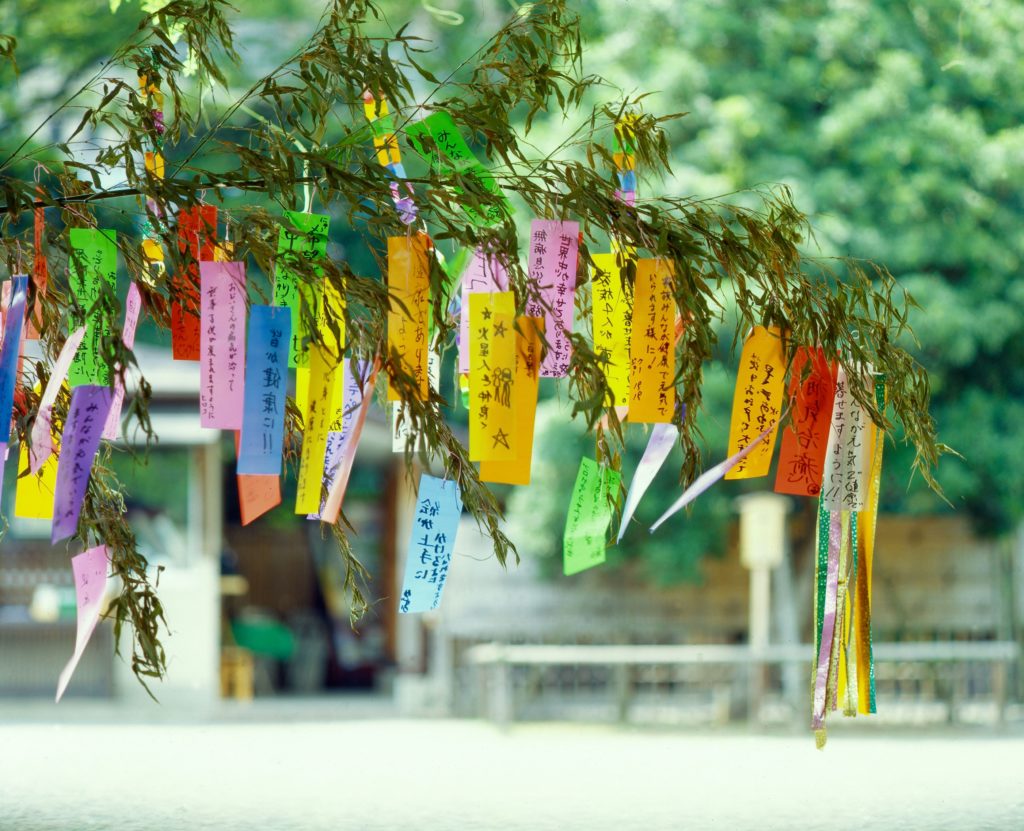
On July 7th (七月七日) the Tanabata (七夕) Festival is celebrated in Japan. It honors the romantic tale of Orihime and Hikoboshi. They are literally “star-crossed lovers” who are only able to meet each other on this day once a year in the Milky Way. At the beginning of our first class on July 7th, our Sensei described the holiday to us while speaking in Japanese. According to her, the story is based on a legend that originated in China. In this story, there are two stars that are lovers: the star Vega (織姫 Orihime) and the star Altair (彦星 Hikoboshi). They are separated by the Milky Way and therefore can only see each other on July 7th of each year. Our Sensei practically swooned at the telling of the story. In her estimation, it is a truly romantic story, because it talks about a patient, enduring kind of love. She then made a joke that she wishes she also had that kind of love and so the story gives her hope.
When I asked about how the couple got themselves into such an unfortunate situation, I learned a lot more about the details behind this romantic legend. Orihime is a princess who spends her time creating beautiful clothing for her father who is the kind of the sky (Tentei). As Orihime works she usually does so along the Milky Way which is referred to as “the Heavenly River”. On the other side of this “river” Hikoboshi works as a cow herder. Tentei knew that his daughter was sad and wanted her to find someone to love and so because he saw that Hikoboshi was such a hard worker he arranged for them to meet each other. They instantly fall in love and get married. Unfortunately, after Hikoboshi and Orihime get together they spend too much time together and end up falling behind in their duties. This upsets Tentei especially because Orihime has less time to spend making garments for her father. So, to punish them he banishes Hikoboshi all the way to the other end of the galaxy.
However, finally giving into his daughter’s tears and pleas, Tentei permits them to reunite on the 7th day of the 7th month, but only if Orihime completes all her tasks. Tanabata itself translates to the 7th evening. To celebrate this festival, Japanese people inscribe well-wishes on colorful paper strips called “tanzaku”. (短冊たんざく). Additionally, people also wish for clear skies on this day because if it rains the rising “river” may prevent the unification of these lovers.